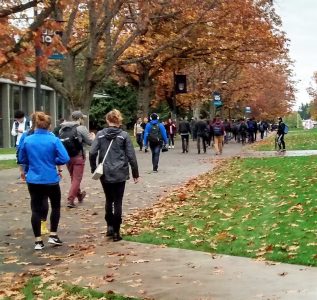
Many Canadian cities have ambitious goals to increase the share of travel by “active” modes of transportation – primarily walking and bicycling. For example, Vancouver has a non-auto mode share goal of two-thirds of trips by 2040, with the largest percentage change in bicycle trips. But active travellers have long been neglected in most transport systems analyses which focus on motor vehicle travel, and transportation professionals need innovative new tools to better plan, design, and manage urban transport systems for increased active travel.
Better understanding of active travel behaviour and performance is vital to the design of sustainable transport infrastructure, mitigation of negative health and safety impacts, development of advanced human-powered and human-electric hybrid vehicles, and management of transport systems to achieve diverse efficiency, equity, and environmental goals.
The two long-term goals of this research program are 1) to advance deep and detailed understanding of how people move around in cities when outside of motor vehicles, and 2) to use that knowledge to develop strategies and technologies for more sustainable and healthy urban transport systems. Accomplishing these goals requires comprehensive study of active travellers in multiple scales and contexts, including experimentation with highly-instrumented travellers in controlled and uncontrolled environments. Laboratory, field, and naturalistic study methods each have strengths and weaknesses for studying active travellers, with a general trade-off between experimental control and authenticity of behaviour.
Integrated research methods are needed that can capture the experimental control and measurement precision of laboratory studies with the behavioural realism of naturalistic studies. In addition, multi-context study designs can increase the value of data by cross-validation and calibration in other contexts.